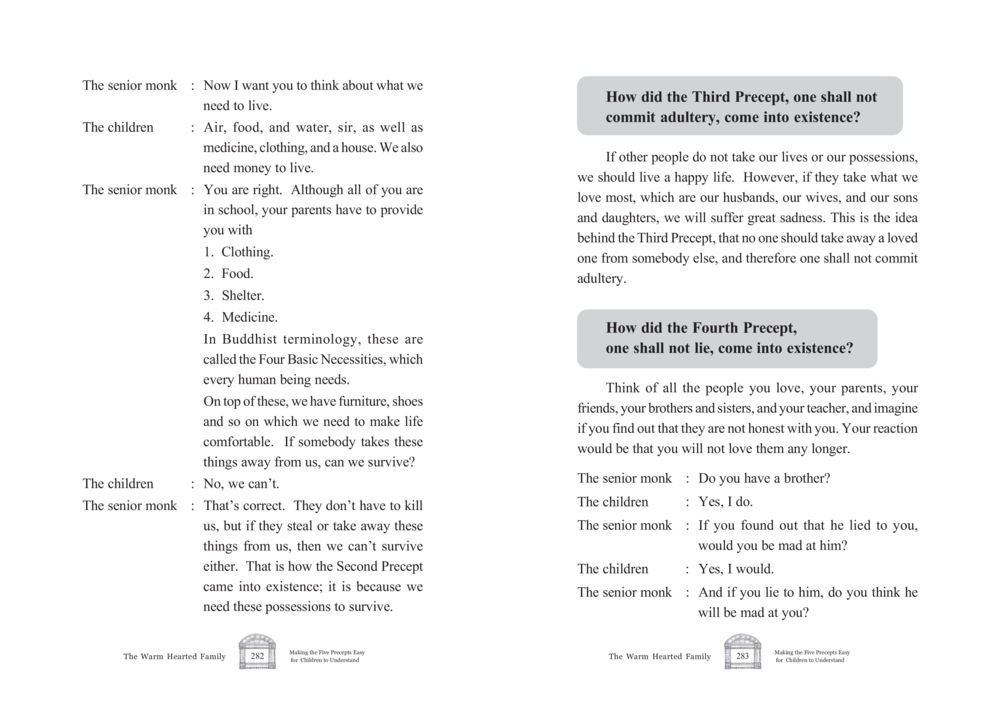Understanding the Four Basic Necessities and Precepts : หน้า 142/207
The Warm Hearted Family : หน้า 142/207 A discussion on life essentials and Buddhist precepts explained for children.
0 ครั้ง

สรุปเนื้อหา
In this dialogue, a senior monk teaches children about the essentials needed for life: air, food, water, medicine, clothing, and shelter, referred to as the Four Basic Necessities. The monk emphasizes the significance of these items for survival and connects them to the Second Precept about not stealing. He further explains the importance of love and honesty in relationships, which leads to the discussion of the Third and Fourth Precepts, regarding adultery and lying. The conversation encourages children to understand the values of honesty and respect in their relationships with family and friends. For deeper insights, visit dmc.tv.
หัวข้อประเด็น
-Four Basic Necessities
-Second Precept: No stealing
-Third Precept: No adultery
-Fourth Precept: No lying
-Importance of honesty in relationships
-Teaching ethics to children
ข้อความต้นฉบับในหน้า
หน้าหนังสือทั้งหมด















































































































































































































